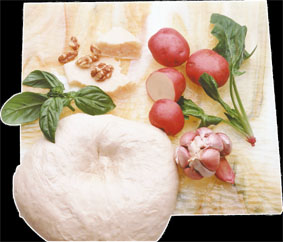 There exists a new era for nutraceuticals in cardiovascular disease prevention, says a new report by Business Insights
There exists a new era for nutraceuticals in cardiovascular disease prevention, says a new report by Business InsightsHEART disease used to mean a weak heart and nutraceuticals used to be bystanders amongst clinical heart disease solutions. Times have changed. Averting vascular disease is now a central calling for the nutraceuticals industry. This is because the mechanisms of vascular damage have increasingly indicated a major culprit: a lack of nutrition hygiene.
The Nutraceutical Triple Play
There are three strategies nutraceuticals can offer to prevent and reverse vascular disease. The first is to reduce circulating levels of LDL-cholesterol. This is achieved by modulating cholesterol production in the liver, binding cholesterol within the intestines and/or increasing LDL-c receptor uptake in the liver. In a 2003 research review from the UK's Peninsula Medical School, 11 nutraceuticals were found amongst 25 clinical studies to reduce cholesterol. The second strategy is to reduce the possibility of oxidation by neutralising radicals with antioxidants. The third is to reduce artery plaque through fibrinolytic activity. Nutraceuticals can execute all three strategies.Sterols, Stanols, Phenols & Flavones
Plant-derived sterols and stanols compete with cholesterol to form micelles with bile salts. This reduces cholesterol's absorption into the bloodstream. In a 2009 meta-analysis of 76 clinical studies, sterols and stanols reduced LDL-c by an average of 13.65 mg/dL - with 2g per day producing therapeutic effects. All plants contain sterols such as stimasterol, beta-sitosterol and campesterol. Significant amounts appear in vegetables, nuts and seeds. Significant stanol content is found in pecans, avocados, pumpkin seeds, cashews, rice bran, sea buckthorn and others. Plants favoured for sterol and stanol extraction include corn, soybeans and wheat. Phenols have been shown to reduce cholesterol levels and LDL oxidation. Green tea (Camellia sinensis) polyphenols reduced LDL-c by 9 mg/dL in a study of 111 healthy adults. Pomegranate polyphenols reduced oxidised LDL levels by 39% in a study of 10 diabetic patients at Israel's Rambam Medical Centre. "Pomegranate polyphenols can protect LDL-c against cell-mediated oxidation via two pathways, including either direct interaction of the polyphenols with the lipoprotein and/or an indirect effect through accumulation of polyphenols in arterial macrophages," said the study's authors. Apple polyphenols have also been shown to reduce LDL-c oxidation. A study of 27 volunteers at the University of California showed that 375ml of apple juice per day significantly reduced LDL-c oxidation. Similar results have been found with purple grape juice and grape seeds, as we know from "French paradox" research. Other superfruits like the wolfberry or goji (Lycium barbarum or L. chinense) have attracted attention for their phytosterol content. Goji is also one of the few fruits containing heart-healthy omega 3 alpha-linolenic acid. Goji also contains antioxidant carotenoids such as zeaxanthin and prebiotic fibres known to lower cholesterol levels. Campbell's and Minute Maid brand managers have caught on, adding goji juice to recent offerings. The oxygenated sterols from reishi mushroom (Ganoderma lucidum) such as ganoderol and ganoderic acid have been shown to inhibit cholesterol synthesis within liver cells. Other medicinal mushrooms like cordyceps also show vascular protection. Bound antioxidant proanthocyanidin flavones called procyanidolic oligomers or "PCOs" are found in grape seed extract. Research has demonstrated PCOs have a protective and strengthening effect on artery walls through increased enzyme conjugation; greater collagen fibre cross-linking; decreased artery wall permeability; increasAir Force 1
Apple polyphenols have also been shown to reduce LDL-c oxidation. A study of 27 volunteers at the University of California showed that 375ml of apple juice per day significantly reduced LDL-c oxidation. Similar results have been found with purple grape juice and grape seeds, as we know from "French paradox" research. Other superfruits like the wolfberry or goji (Lycium barbarum or L. chinense) have attracted attention for their phytosterol content. Goji is also one of the few fruits containing heart-healthy omega 3 alpha-linolenic acid. Goji also contains antioxidant carotenoids such as zeaxanthin and prebiotic fibres known to lower cholesterol levels. Campbell's and Minute Maid brand managers have caught on, adding goji juice to recent offerings. The oxygenated sterols from reishi mushroom (Ganoderma lucidum) such as ganoderol and ganoderic acid have been shown to inhibit cholesterol synthesis within liver cells. Other medicinal mushrooms like cordyceps also show vascular protection. Bound antioxidant proanthocyanidin flavones called procyanidolic oligomers or "PCOs" are found in grape seed extract. Research has demonstrated PCOs have a protective and strengthening effect on artery walls through increased enzyme conjugation; greater collagen fibre cross-linking; decreased artery wall permeability; increasAir Force 1
 iConnectHub
iConnectHub
 Login/Register
Login/Register Supplier Login
Supplier Login



























